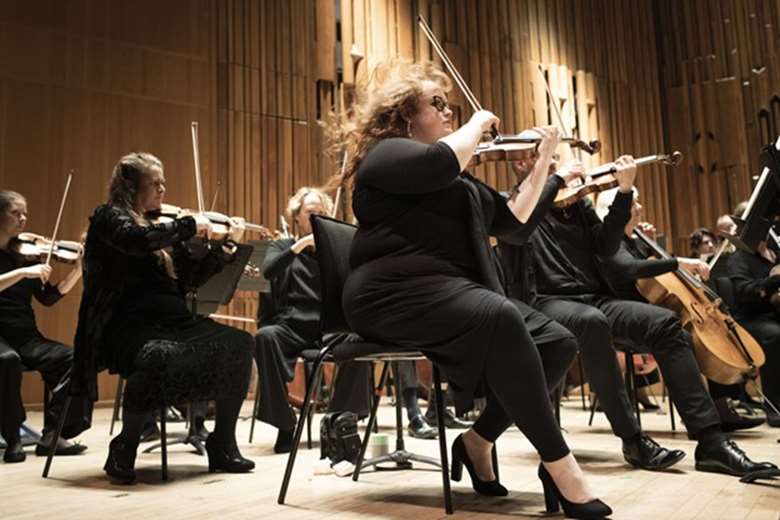Britten Sinfonia launches Play On appeal
Florence Lockheart
Thursday, March 9, 2023
The chamber orchestra is looking to raise £1 million to enable it to continue operating following the recent cut to its Arts Council England funding

British chamber orchestra Britten Sinfonia has today launched a public appeal to raise £1 million over the next three years to relieve the financial shortfall following the withdrawal of its funding as an Arts Council England (ACE) National Portfolio Organisation (NPO). The campaign was launched this morning with a short film featuring a range of musical figures, plus an NHS nurse and a teacher.
Britten Sinfonia receives 50% of its income from ticket sales and engagements, with the remaining half split equally between ACE funding and independent fundraising efforts. The orchestra previously received £406,000 per annum from ACE but, aside from ACE transition funding which will continue until the end of October 2023, the council removed Britten Sinfonia’s funding entirely as part of its NPO announcement in November 2022.
Britten Sinfonia artistic director and chief executive Meurig Bowen said: ‘We never took for granted this longstanding public funding, and cherished the ability it gave us to make bolder programming choices, to bring into being so much newly composed music, and to have a wide-reaching presence throughout the East of England in concert halls, schools, health and community settings… We are so proud of the range and quality of our work, and are determined that this loss of ACE funding will not decrease or degrade what we do.’
The Play On appeal has received widespread support from music industry members including composers Steve Reich, Judith Weir, Sir James MacMillan, Thomas Adès and Nico Muhly, singers Dame Sarah Connolly and Roderick Williams, trumpeter Alison Balsom, harpsichordist Mahan Esfahani and pianist Benjamin Grosvenor.
Weir, who holds the title of master of the King’s Music and was recently commissioned to write a work for the King’s upcoming coronation, said: ‘We definitely need to experience more live classical music outside of our biggest urban centres - in smaller cities, towns and rural spaces. Fortunately we have a successful model for this, widely considered to be the UK’s finest chamber orchestra - inventive in its public approach, accessible and creative. This is, of course, Britten Sinfonia. Hearing less of - or even losing - this vital ensemble is not an option, especially in its east of England centres.’
Based in Cambridge, Britten Sinfonia, is the only professional orchestra in the East of England. With residencies in Norwich, Saffron Walden, and as an associate ensemble at the Barbican, the orchestra has an impact reaching around 14,000 people annually through outreach projects within the community impacting schools, hospitals, elderly care settings and prisons.
In 2017 the ensemble became the first UK orchestra to play at Hamburg’s newly opened ElbPhilharmonie and, alongside choral ensemble The Sixteen, it gave the first ever live streamed concert from the Vatican’s Sistine Chapel. Britten Sinfonia supports emerging composers through its two talent development schemes: Opus 1 and Magnum Opus and has commissioned nearly 250 new works, both from emerging and well-established composers.
American composer Nico Muhly said: ‘Britten Sinfonia was one of the first organisations to give me a chance as a young composer and they took an enormous risk by commissioning a lot of work in a short period of time. I owe so much of my current life in music to their generosity, and I know I speak for generations of young, (and youngish) composers and performers and presenters when I say that Britten Sinfonia’s work is so key and so crucial. I cannot encourage you enough to support them in every way that you possibly can.’




